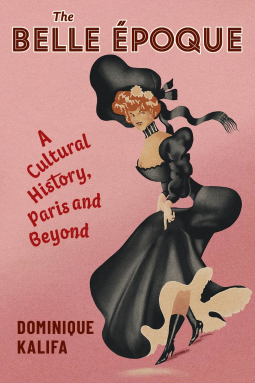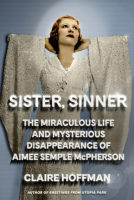
The Belle Époque
A Cultural History, Paris and Beyond
by Dominique Kalifa
This title was previously available on NetGalley and is now archived.
Send NetGalley books directly to your Kindle or Kindle app
1
To read on a Kindle or Kindle app, please add kindle@netgalley.com as an approved email address to receive files in your Amazon account. Click here for step-by-step instructions.
2
Also find your Kindle email address within your Amazon account, and enter it here.
Pub Date Jul 06 2021 | Archive Date Oct 13 2021
Talking about this book? Use #TheBelleÉpoque #NetGalley. More hashtag tips!
Description
This book traces the making—and the imagining—of the Belle Époque to reveal how and why it became a cultural myth. Dominique Kalifa lifts the veil on a period shrouded in nostalgia, explaining the century-long need to continuously reinvent and even sanctify this moment. He sifts through images handed down in memoirs and reminiscences, literature and film, art and history to explore the many facets of the era, including its worldwide reception. The Belle Époque was born in France, but it quickly went global as other countries adopted the concept to write their own histories. In shedding light on how the Belle Époque has been celebrated and reimagined, Kalifa also offers a nuanced meditation on time, history, and memory.
Advance Praise
"Dominique Kalifa’s 'untold' history of the Belle Époque offers a probing reflection on the concepts through which we structure and give meaning to time and the past. Scholars of memory, nostalgia, and temporality will find much to think about in a book that is at once playful and ambitious."
--Stéphane Gerson, author of Disaster Falls: A Family Story
Available Editions
| EDITION | Other Format |
| ISBN | 9780231202091 |
| PRICE | $30.00 (USD) |
Featured Reviews
 Reviewer 343665
Reviewer 343665
Very excellent and in-depth descriptions of what the Belle Epoque was, what characters were in it and why it developed. Very detailed. It helps to have been to Paris so that the areas discussed come to mind. But the writer does a good job of bringing the city to the reader.
Throughout the read I always had the semi uncomfortable feeling that I was hovering above the activity, though. I never really felt involved, like I was THERE, the way one would in reading a good biography. I think this should have been the biography of an era so that one does not feel outside the action so much. Overall it is a very well done piece and if you want to get an idea of what the Belle Epoque was, this will be a good source.
 jean luc e, Librarian
jean luc e, Librarian
With The Belle Epoque the late Dominique Kalifa gave us a magnificent and very detailed portrait of France and its civilization from the tail-end of the 19th century to the beginning of WWI.
From its artistic avant gardes to its fledgling technological progresses (electricity, automobiles, filmmaking,..etc.) Kalifa covers all the significant changes that profoundly altered all aspects of French society during the optimistic and peaceful years leading to the Grande Guerre. But it's when the author starts to explain the notion of Belle Epoque and how it came to be used almost 20 years later that the book becomes really fascinating. It was in 1940 on Radio Paris that it was heard in France for the first time after the Germans had started to occupy the country. Kalifa explains with brio how the expression came to represent a longing for better times, times unfortunately gone, for a humiliated nation in "search of lost time" a nation looking back longingly and nostalgically at 15 years of peace, optimism and joie de vivre, and how la Belle Epoque and its images have influenced us overhere in France ever since.
On a more personal level, I remembered while reading this captivating and very engrossing book that back in the late 70s I actually got into trouble in high school with one history professor because I couldn't conciliate Belle Epoque and Affaire Dreyfuss. La Belle wasn't so beautiful after all.....Mais ça c'est une autre histoire...
Kudos to Ms. Susan Emanuel for her wonderful translation and many thanks to Netgalley and Columbia University Press for the opportunity to read this wonderful book
Readers who liked this book also liked:
Nigel Henbest; Simon Brew; Sarah Tomley; Ken Okona-Mensah; Tom Parfitt; Trevor Davies; Chas Newkey-Burden
Entertainment & Pop Culture, Humor & Satire, Nonfiction (Adult)


















